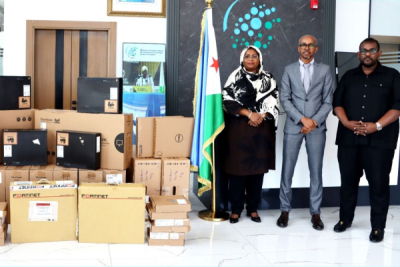Mobile internet access in Africa is evolving rapidly, yet speed disparities persist. While some countries report strong connection speeds, others struggle to keep up due to infrastructure and technological challenges.
South Africa leads the African continent in terms of mobile download speeds, averaging 34.5 Mbps, according to a report published, on Monday, by mobile data analytics firm Opensignal. This speed is 50% faster than that of Zimbabwe, which ranks second, and four times faster than Angola, which is at the bottom of the list.
Titled The State of Mobile Network Experience in Africa, the report covers 27 African countries and attributes these disparities to differences in network infrastructure investments and spectrum management. In South Africa, sustained efforts to modernize infrastructure and the rapid adoption of 4G and 5G technologies have enabled faster, more reliable connectivity. Conversely, Angola remains reliant on older technologies like 2G, which limit speeds and hinder the use of modern applications—a challenge also affecting countries like Zimbabwe and Mali, where infrastructure still needs significant upgrades.
In terms of Consistent Quality (CQ), a measure of the stability needed for services like video calls, South Africa and Tunisia perform well, with CQ scores of 58.6% and 57.6%, respectively. However, in over half of the African countries analyzed, CQ scores fall below 30%, indicating unstable connectivity that limits user experience, especially in countries like Mali, Guinea, and Cameroon.
To address these gaps, Opensignal suggests governments should invest in infrastructure, ensure efficient spectrum allocation, create supportive regulatory frameworks, enhance digital skills, address device affordability, and promote wider adoption of 4G and 5G technologies.
According to the GSMA increased mobile internet use could add about $795 billion to Africa’s GDP between 2023 and 2030. This underscores the significant economic impact that enhanced connectivity could have across the continent.
Samira Njoya



















